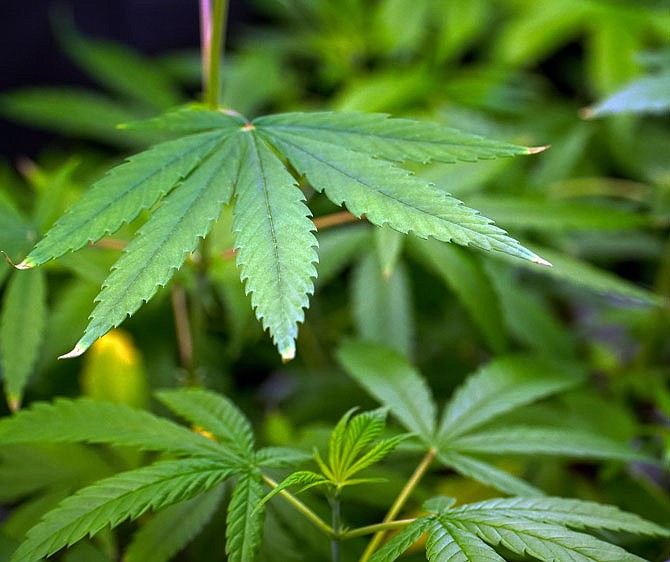More than a month ago, the Missouri Department of Agriculture started accepting applications for producers who want to grow industrial hemp this year.
As of Thursday, no Cole County applications had been received.
That's a far cry from Linn County, where 23 such applications had been filed - the most of any single county in Missouri, according to data from the state Agriculture Department.
The federal government legalized the production and sale of hemp and extracts in the 2018 Farm Bill - but only if THC levels in the plants are no more than 0.3 percent on a dry weight basis.
Hemp and marijuana come from the same plant, and THC is the psychoactive chemical compound that causes the high of medicinal or recreational-use marijuana.
Following legalization, the United States Department of Agriculture released in October 2019 an interim rule to establish the regulatory framework for growing industrial hemp.
The rule notes, "Hemp is a commodity that can be used for numerous industrial and horticultural purposes including fabric, paper, construction materials, food products, cosmetics, production of cannabinoids (such as cannabidiol or CBD), and other products."
But while hemp had previously been produced for hundreds of years in the U.S., its use has diminished in favor of alternatives such as imported jute and abaca for fiber in rope and clothing. The invention of the cotton gin replaced hemp in textile manufacturing.
More recently, "Hemp production in the U.S. has seen a resurgence in the last five years; however, it remains unclear whether consumer demand will meet the supply. High prices for hemp, driven primarily by demand for use in producing CBD, relative to other crops, have driven increases in planting. Producer interest in hemp production is largely driven by the potential for high returns from sales of hemp flowers to be processed into CBD oil."
The USDA's rule lets states allow for hemp to be grown in 2020 without having submitted an official regulatory plan, under a one-year extension.
"We opted to go with the extension option so that our producers, industry and regulators could get seed in the ground in 2020, while also preparing them for future changes. The rules filed by the Department provide some transition between our existing regulatory framework and what we anticipate USDA's final regulations will require," said Sami Jo Freeman, spokesperson for the Missouri agriculture department.
"We've worked closely with (the USDA) to provide Missouri-specific feedback on their Interim Final File. We've encouraged interested producers in Missouri to anticipate further changes in laws and regulations over the next several years as USDA, states, tribes and territories work to establish final guidelines for the crop," Freeman added.
Freeman said the Missouri agriculture department had received 159 applications since the department began to accept them Jan. 2 - 107 applications to register as a hemp producer that can sell baled fiber stalks, denatured grain and dried, seedless floral material, and 52 applications to receive a permit to sell or distribute viable plant transplants, cuttings, clones, seedlings or seed.
After Linn County's 23 producer applications, the other counties with the most filed so far have been: Cass, with 9; Jasper, with 8; Platte, 7; Dunklin, Jackson, Mississippi and St. Louis, 6 each; and Franklin, Montgomery, Oregon and St. Charles, with 5 producer applications each.
"To producers who may be the only one in their county, we've grouped counties that have one-four applications together," Freeman said of the data, and that includes Boone, Miller and Osage counties.
Callaway, Moniteau and Morgan counties, like Cole, had also not produced any applications to grow hemp.
Guidance from the state agriculture department on how to submit an industrial hemp application is available at agriculture.mo.gov/plants/industrial-hemp/applications.php.
To register as a producer, applicants "and all key participants" must complete a state and federal criminal background check through fingerprint within 30 days of submitting an application.
"Key participants" include business proprietors, partners and executive managers, including chief executive, operating or financial officers, but not "farm, field or shift managers."
Applications for producer registration or the separate permit for selling viable plants must also include "a detailed map of the parcel(s) of the proposed location(s)," including high-resolution, color satellite images.
Applications cannot be accepted online, and they must include a $750 check. "An annual fee of $750 per application will be due at the end of the anniversary month of the date of issuance," the state agriculture department's website added.
The state would then have, so far, made more than $80,000 just off the applications to grow hemp.

